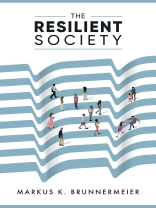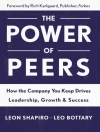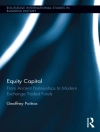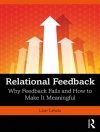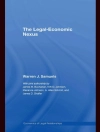People in a resilient society are able to bounce back from shocks, such as pandemics and economic crises. The Resilient Society, by Princeton University economist Markus Brunnermeier, describes how individuals, institutions, and nations can successfully navigate a dynamic, globalized economy filled with unknown risks. Lacking resilience, societies, families, and individuals can reach tipping points from which they cannot recover. Written for business leaders, economists, policymakers, and politically interested citizens, the book argues that the concept of resilience can be a compass for developing a social contract that benefits all people. The author applies his macroeconomic insights to public health, innovation, public debt overhang, inflation, inequality, climate change, and challenges to the global order.
The Resilient Society was awarded the prestigious German Business Book Prize in 2021.
‘Markus Brunnermeier has written a landmark book on resilience. It is an indispensable guide to what we must learn from the pandemic, and how to do better next time.’ – Angus Deaton, 2015 Nobel laureate in economics
‘In this book, Markus Brunnermeier thinks big about the long-term future, in light of the lessons we have learned from recent transforming events, such as the Covid-19 pandemic and the digital revolution. His book is a significant read for anyone taking a leadership role in the coming years. An excellent reading to an intro economics course.’ – Robert Shiller, 2013 Nobel laureate in economics
‘Markus Brunnermeier provides a new framework for understanding resilience in finance and in the political economy. He argues that we need to adopt a wider vision of how economies work. Lucid, clear, and engaging, the book should be required reading for any economist or policymaker seeking a new way of imagining the craft of economics.’ – Gillian Tett, Financial Times, chair of the editorial board and editor-at-large
‘Markus Brunnermeier, one of the leading economists of this generation, shows us how we can address crises more effectively in the future. His book will be an invaluable resource for scholars and practitioners looking to build a more resilient, just, and productive society.’ – Raj Chetty, William A. Ackman Professor at Harvard University and the director of Opportunity Insights
Tabla de materias
Foreword
Acknowledgements
Introduction
Part I: Resilience and Society
Chapter 1: Resilience and Its Cousins
Chapter 2: Resilience and the Social Contract
Part II: Containing the Shock: The Case of Covid-19
Chapter 3: Behavioral Responses to Waves and Resilience Illusions
Chapter 4: Information, Testing, and Tracing
Chapter 5: Communication: Managing People’s Worries
Chapter 6: The Role of Vaccines in Designing a New Normal
Part III: Macroeconomic Resilience
Chapter 7: Innovation Boosts Long-Lasting Growth
Chapter 8: Scarring
Chapter 9: The Financial Market Whipsaw: Central Banks as Guardians of Financial Resilience
Chapter 10: High Government Debt and Low Interest Rates
Chapter 11: The ‘Inflation Whipsaw’
Chapter 12: Inequality
Part IV: Global Resilience
Chapter 13: Resilience Challenges of Emerging Economies
Chapter 14: New Global World Order
Chapter 15: Climate Change and Resilience
Conclusion and Outlook
Endnotes
Bibliography
Index
Sobre el autor
Markus Brunnermeier is the Edwards S. Sanford Professor at Princeton University and director of Princeton’s Bendheim Center for Finance. He is a Sloan Research Fellow, Fellow of the Econometric Society, Guggenheim Fellow, Vice President of the American Finance Association and non-resident fellow at Peterson Institute for International Economics. He has served on the advisory boards of the IMF, the Federal Reserve of New York, the European Systemic Risk Board, the Bundesbank, and the US Congressional Budget Office. His research focuses on international financial markets and the macroeconomy with special emphasis on bubbles, liquidity, financial, and monetary price stability.
